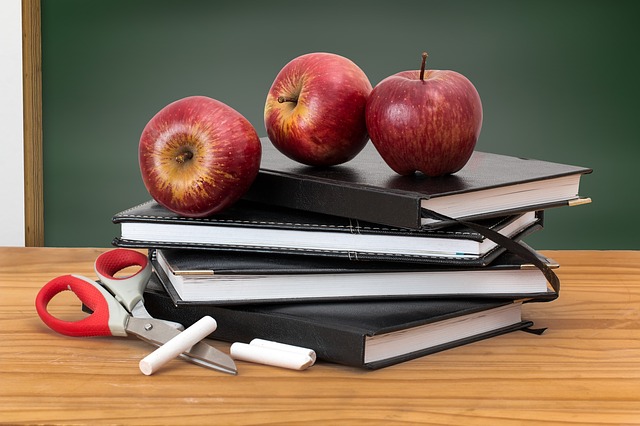Sign up for our information-filled email newsletter

4 Benefits of Positive Student-Teacher Relationships

Positive and healthy relationships between teachers and students can be extremely beneficial at all levels of an educational establishment, within the classroom and across the school environment as a whole.[1] From improved self-esteem to increased engagement, there are a number of benefits of establishing positive student-teacher relationships between educators and pupils of all ages. Educators and students can experience these benefits with the use of methods that include communicating positive expectations, demonstrating caring, and developing classroom pride.[2] As positive student-teacher relationships continue to develop, the long-lasting effects benefit not only students and teachers but parents and administrators as well.[3]
1. Promote Academic Success with Positive Student-Teacher Relationships
The presence of positive student-teacher relationships alone does not translate to academic success, but students that establish a strong bond with their teacher do perform better than students whose relationships with teachers involve some sort of conflict.[4] Teachers can help improve academic success in students by clearly expressing positive expectations for each student, presenting students with equal opportunities to participate in class discussions, and expressing to students that they are confident in their ability to succeed when it comes to their coursework.[5]
2. Avoid Behavior Problems through Healthy Student-Teacher Relationships
Another one of the benefits of healthy student-teacher relationships is a classroom that is free of behavioral disruptions, which leaves teachers more time to instruct their class.[6] Positive student-teacher relationships help to establish a learning environment in which educators and students display mutual respect for one another, rather than exchanges that involve conflict.[7] Achieving this balance is dependent upon the manner in which a teacher addresses students when they misbehave and in general, as it is a determining factor in how students respond.[8] Teachers should be sure to maintain a calm demeanor when communicating with a student, avoiding frustration. Some examples of correcting student behavior in a non-confrontational manner include:
- • Speaking with students privately about their behavior in order to avoid embarrassment.
- • Acknowledging students’ feelings in order to understand the cause of their behavior.
- • Reviewing school policy or classroom guidelines so that students are aware of the rules they have violated.
- • Following up discussion with immediate consequences for students that misbehave.
- • Checking on students after they have been disciplined for their actions.[9]
In order to prevent a behavior problem from occurring again, the problem must be addressed. This highlights the importance of student-teacher relationships in which student behavior is corrected in a manner that encourages them to reflect on how they have misbehaved and what steps they can take in the future to change it.[10]
3. Help Develop Self-Worth and Improved Student Mental Health
Healthy student-teacher relationships are often most beneficial for specific categories of students, including male students, those suffering from learning difficulties, and students with low economic status.[11] In order to help students develop a sense of self-worth, it may sometimes be necessary to seek out opportunities to give them praise with acknowledgments of academic and even athletic accomplishments.[12] Students with low self-esteem, often those considered at-risk, will react positively to positive reinforcement from their teacher, providing students with a sense of pride.[13]
4. Positive Student-Teacher Relationships Assist Educators with Professional Growth
Students aren’t the only ones that benefit from healthy student-teacher relationships. One primary benefit for the educator is that, as teachers work strategically to develop these relationships, they improve their interpersonal and professional skills as well. Teaching is a profession that requires the ability to clearly communicate information even during stress-inducing scenarios. It is important for teachers to find ways to successfully manage stress, in order to express concepts and avoid frustration.[14] For some educators, improving their interpersonal communication skills helps to reduce stress and develop positive student-teacher relationships, in addition to positive relationships with parents and co-workers.[15] An added benefit of improved interpersonal skills includes personal and professional growth, which may be positively reflected in an educator’s level of communication with students and the amount of student engagement that occurs as a result of it.[16]
Positive Student-Teacher Relationships Create Thriving Classrooms
Clearly, there are many significant benefits of positive student-teacher relationships. When students feel a sense of classroom pride and teachers are able to effectively communicate with their class, engagement occurs. A classroom in which students and teachers can focus on education rather than disturbances is one in which they both can thrive.
[1]“Educator’s Guide to Preventing and Solving Discipline Problems.” Ascd.org. Retrieved from http://www.ascd.org/publications/books/105124/chapters/Developing_Positive_Teacher-Student_Relations.aspx on June 30, 2016.
[2]“Educator’s Guide to Preventing and Solving Discipline Problems.” Ascd.org. Retrieved from http://www.ascd.org/publications/books/105124/chapters/Developing_Positive_Teacher-Student_Relations.aspx on June 30, 2016.
[3]“Educator’s Guide to Preventing and Solving Discipline Problems.” Ascd.org. Retrieved from http://www.ascd.org/publications/books/105124/chapters/Developing_Positive_Teacher-Student_Relations.aspx on June 30, 2016.
[4]“Improving Students’ Relationship with Teachers to Provide Essential Supports for Learning.” Apa.org. Retrieved from http://www.apa.org/education/k12/relationships.aspx on June 28, 2016.
[5]“Educator’s Guide to Preventing and Solving Discipline Problems.” Ascd.org. Retrieved from http://www.ascd.org/publications/books/105124/chapters/Developing_Positive_Teacher-Student_Relations.aspx on June 30, 2016
[6]“Educator’s Guide to Preventing and Solving Discipline Problems.” Ascd.org. Retrieved from http://www.ascd.org/publications/books/105124/chapters/Developing_Positive_Teacher-Student_Relations.aspx on June 30, 2016.
[7]“Educator’s Guide to Preventing and Solving Discipline Problems.” Ascd.org. Retrieved from http://www.ascd.org/publications/books/105124/chapters/Developing_Positive_Teacher-Student_Relations.aspx on June 30, 2016.
[8]“Educator’s Guide to Preventing and Solving Discipline Problems.” Ascd.org. Retrieved from http://www.ascd.org/publications/books/105124/chapters/Developing_Positive_Teacher-Student_Relations.aspx on June 30, 2016.
[9]“Educator’s Guide to Preventing and Solving Discipline Problems.” Ascd.org. Retrieved from http://www.ascd.org/publications/books/105124/chapters/Developing_Positive_Teacher-Student_Relations.aspx on June 30, 2016.
[10]“Educator’s Guide to Preventing and Solving Discipline Problems.” Ascd.org. Retrieved from http://www.ascd.org/publications/books/105124/chapters/Developing_Positive_Teacher-Student_Relations.aspx on June 30, 2016.
[11]“Disadvantaged Students Benefit from Strong relationship with Teacher.” Psychcentral.com. Retrieved from: http://psychcentral.com/news/2012/10/12/disadvantaged-students-benefit-from-strong-relationship-with-teacher/45992.html on June 30, 2016.
[12]“Educator’s Guide to Preventing and Solving Discipline Problems.” Ascd.org. Retrieved from http://www.ascd.org/publications/books/105124/chapters/Developing_Positive_Teacher-Student_Relations.aspx on June 30, 2016.
[13]“Educator’s Guide to Preventing and Solving Discipline Problems.” Ascd.org. Retrieved from http://www.ascd.org/publications/books/105124/chapters/Developing_Positive_Teacher-Student_Relations.aspx on June 30, 2016.
[14]“Educator’s Guide to Preventing and Solving Discipline Problems.” Ascd.org. Retrieved from http://www.ascd.org/publications/books/105124/chapters/Developing_Positive_Teacher-Student_Relations.aspx on June 30, 2016.
[15]“Interpersonal Skills.” Ncsu.edu. Retrieved from https://counseling.dasa.ncsu.edu/interpersonal-skills/ on June 30, 2016.
[16]“Interpersonal Skills.” Ncsu.edu. Retrieved from https://counseling.dasa.ncsu.edu/interpersonal-skills/ on June 30, 2016.

- Top Five Reasons to Survey Your Students Every Year
- Pride Surveys’ Top 9 Blog Posts of 2019
- Why Community Advocates Should Include Students at the Beginning
- What You Should Know Before Creating Community Coalitions
- How Students Can Lessen School Stress


 (16 votes, average: 4.13 out of 5)
(16 votes, average: 4.13 out of 5)

